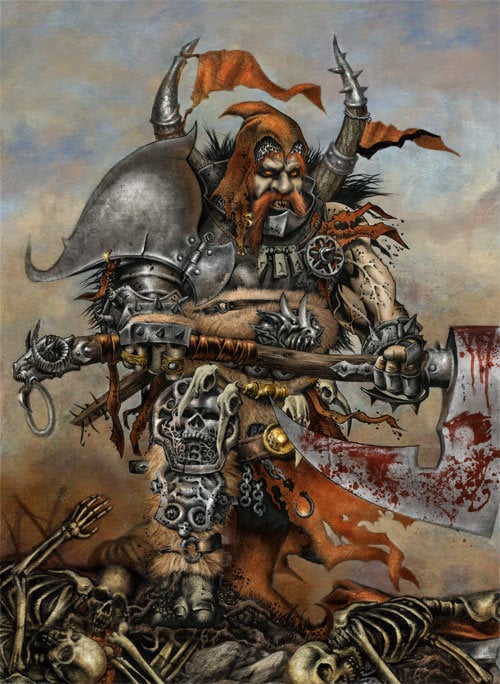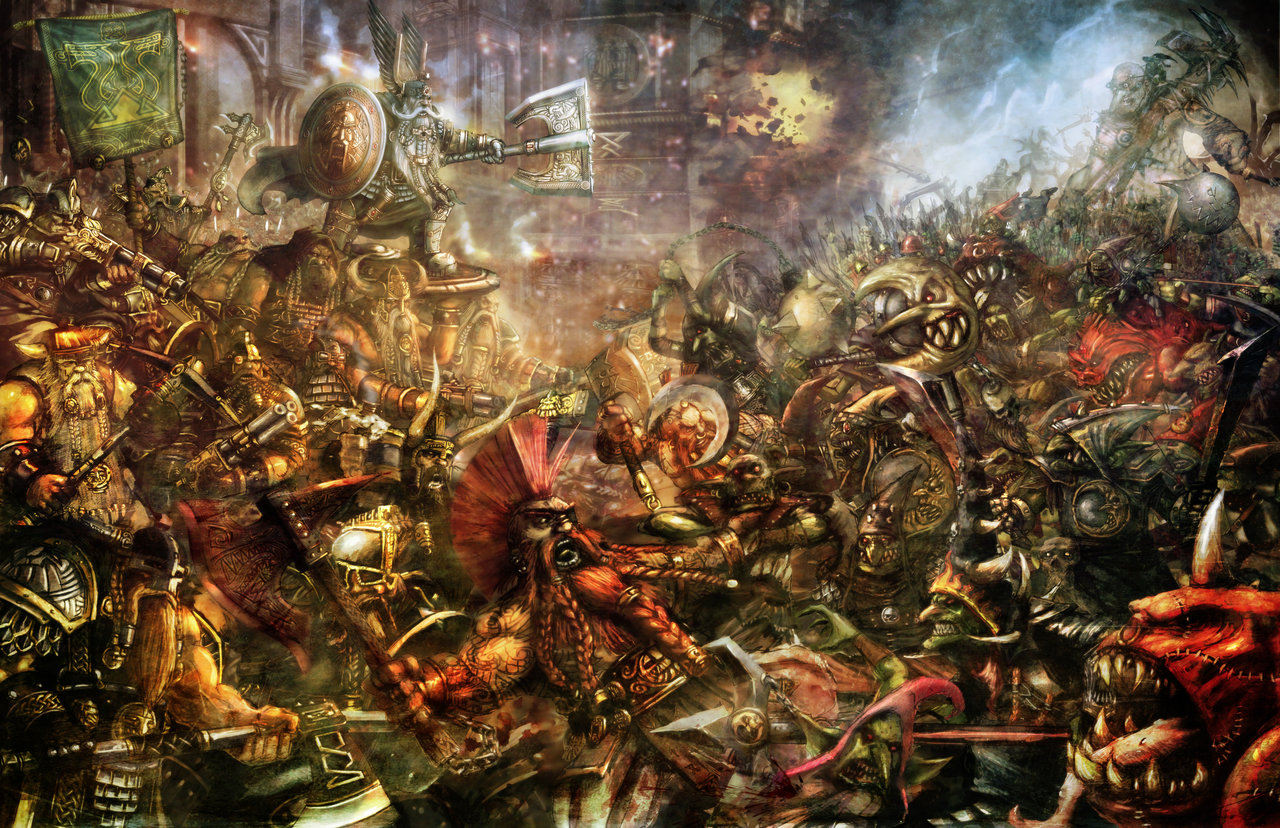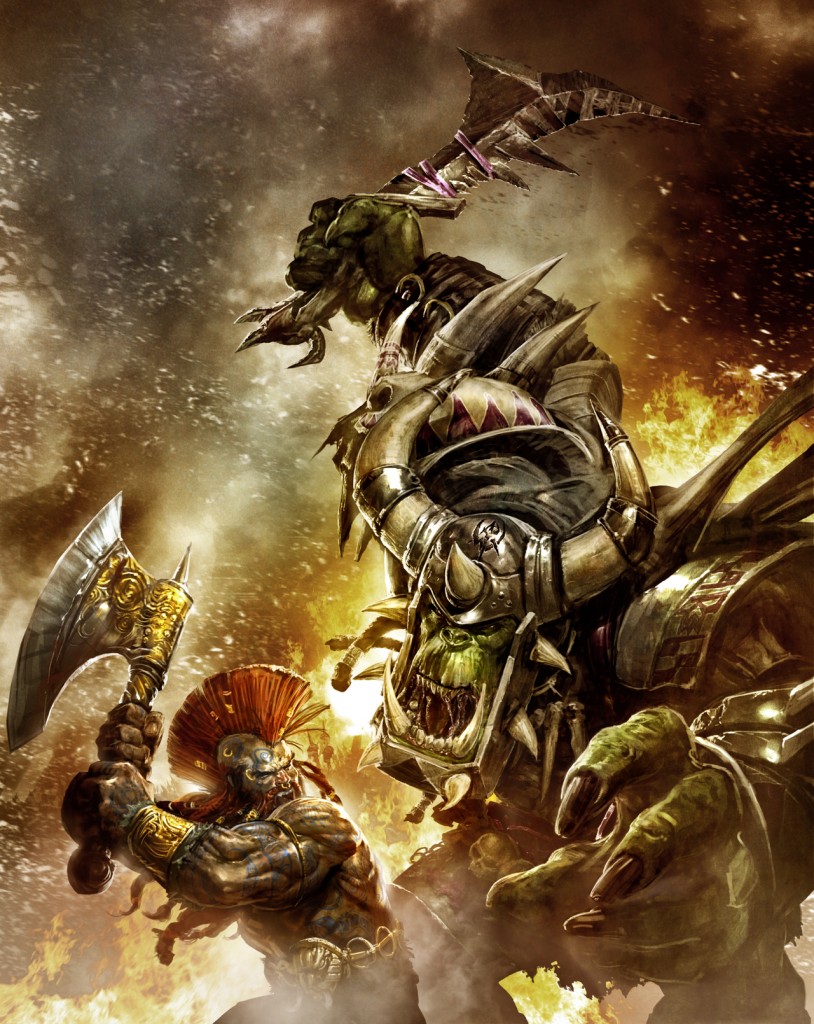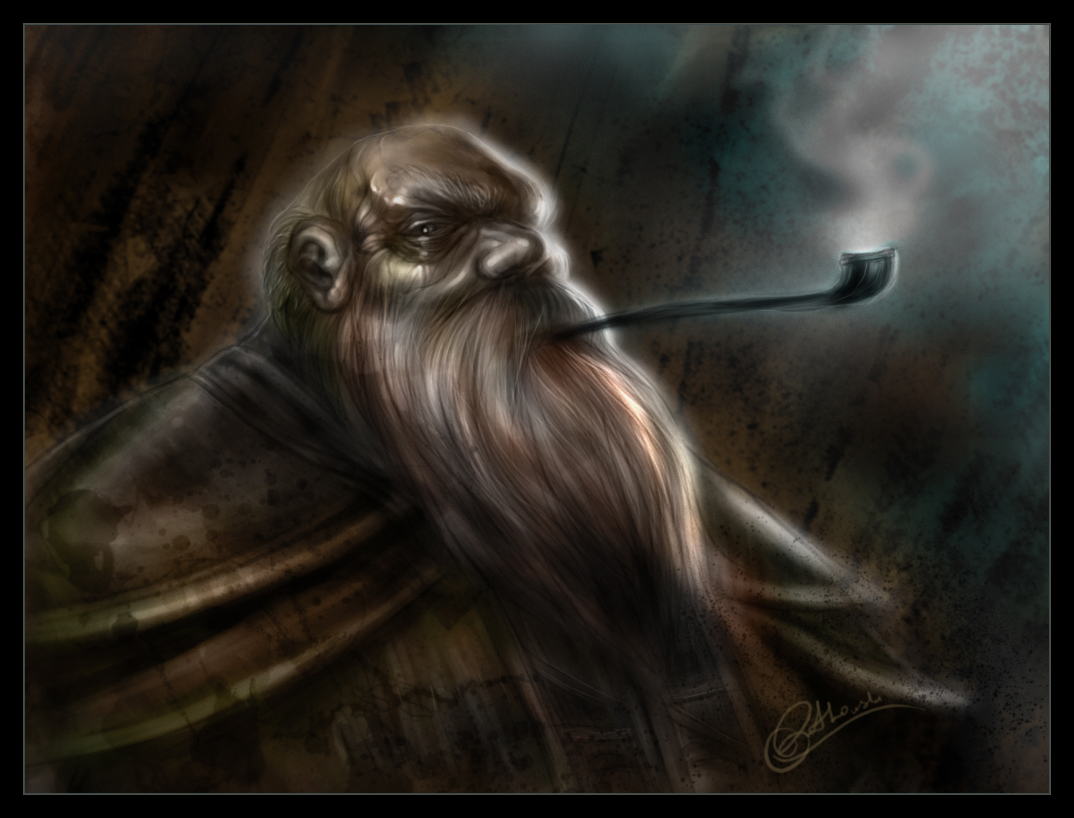WHFB Tactics: Dwarfs – Special
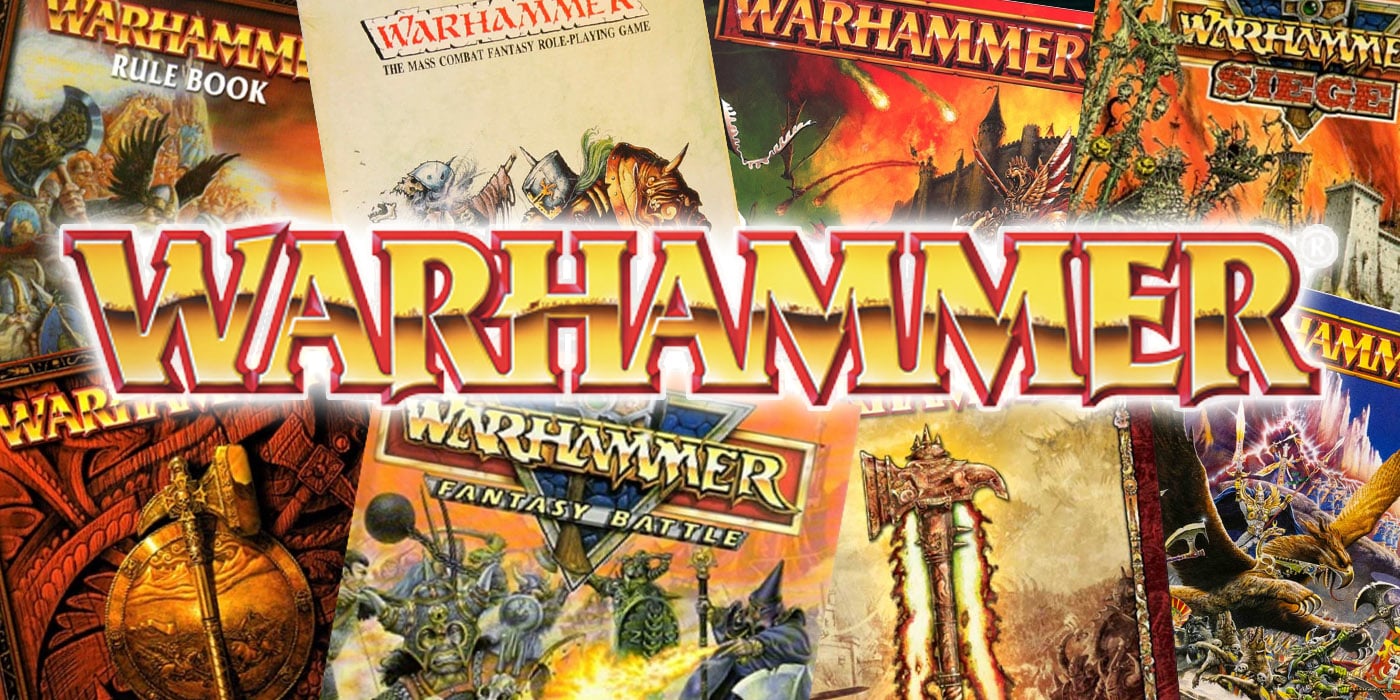
Hello there everyone, my name is Learn2Eel and welcome to my newest set of Unit Overview articles focused on the “stunties” – the mighty Dwarfs from the Warhammer Fantasy setting.
While much of the background Games Workshop employs is heavily inspired by sources such as Tolkien, their own version of Dwarfs has proven most successful by carving out their own identity and distinct traits. Whether you are a beginner or a veteran when it comes to all things small and bearded, I hope you find this a useful series and hope you enjoy it!
Special
Hammerers – While many armies have their own great-weapon wielding elite infantry equivalents, Dwarfs have arguably one of the best in the form of Hammerers. Weapon Skill 5 with base Strength and Toughness 4 evokes Chaos Warriors as one would reasonably expect of the Dwarven King’s Guard, though their low Initiative 2 means they don’t sacrifice a high Initiative value by using great weapons that impose the Always Strikes Last penalty. Whereas most of these types of units in other armies have one Strength 5 attack per model, Hammerers have an outstanding two Strength 6 attacks per model which, with the Resolute special rule, means they have two Strength 7 attacks per model on the charge. Did someone call for an armour-buster? They also don’t skip out on defence by having Toughness 4 and 5+ armour saves, while they are unlikely to ever flee from a fight with innate Stubborn on Leadership 9. Given how easy it is to get a Leadership 10 General for Dwarves, this means they will almost always fight to the last Dwarf when under the influence of a friendly Battle Standard Bearer. They also make the perfect bodyguard for Dwarf characters as befits their role in a Dwarf Hold by being able to accept challenges in place of a Dwarf Lord when one such model is attached to their unit.
That they can get a form of Hatred against certain opponents or all enemy forces via the amusingly random Ancestral Grudge special rule can either be a non-existent or immense buff to their fighting effectiveness, though mostly it won’t help them all that much. One can only pray that Skaven and Orcs and Goblins don’t get into combat with a sizable Dwarf Hammerer unit given that all Dwarfs instinctively have Hatred against those two army books! Of the great weapon wielding units, Hammerers are thus one of the most cost effective by ticking all the right boxes – they are more survivable than the Elf and Human equivalents for the most part, while perhaps only Executioners hit harder than they. The only real issue Hammerers have is that annoying as heck army-wide Movement 3, though this can be seen as the natural balance melee Dwarf units have to make up for how points-efficient they typically are. Chuck in the cheap option to add shields to the unit for 4+ armour saves against shooting – an upgrade that is unnecessary but nice if you have the points spare – and a 75 point runic standard allowance and you have yourself the ultimate damage-dealing Dwarf unit for close combat. Pair them up with a Runesmith and possibly the Strollaz runic banner for a Vanguard unit with two attacks per model (though supporting attacks are restricted to one per model as normal, of course) at Strength 7 featuring Armour Piercing. That unit will munch through anything, even the terrifying 1+ armoured Skullcrushers!
Competitive? Yes.
Ironbreakers – If Hammerers are among the deadliest great-weapon wielding infantry in the game, then Ironbreakers are an anvil without measure – the hammer and anvil, get it? Terrible puns aside, while the general consensus for competitive list building leans towards destroying enemies rather than outlasting them to achieve bigger wins through victory points, Ironbreakers nonetheless prove to be one of the most efficient units in the game in their chosen profession. They share a mostly identical profile to Longbeards with a single Strength 4 attack at Weapon Skill 5, striking at Initiative 2 with a hand weapon for offence. The main difference comes from their superior armour and impressive Leadership 10, though the usual hallmark of Movement 3 nonetheless remains – though admittedly this is less important on a unit that is by definition a defensive choice. Their kit-siblings in Irondrakes aside, Ironbreakers are the only non-character models in the Dwarf army to feature gromril armour – the equivalent of chaos armour – which provides a strong 4+ armour save, stacking with their shields to give them a combined 3+ armour save.
In addition, while most Dwarf units have the Shieldwall special rule for a +1 parry save bonus on the turn that they are charged, Ironbreakers instead have a permanent 5+ parry save which, with their high armour and good Toughness 4, makes them possibly the most survivable infantry choice in the game. While they lack the damage output to really worry anything outside of Elves – though this can be solved by attaching a Runesmith or a kitted out Dwarf Lord – you can make yourself a regiment that will be impossible to shift by all but the most potent combinations of spells, shooting and close combat. If a Thane Battle Standard Bearer or Hammerer unit wields the Banner of Valaya and your list features multiple Runes of Spell-breaking then opponents lacking in strong shooting will find themselves almost entirely out of luck when it comes to beating this unit into dust. When you attach a Thane atop an Oath Stone and give the unit the Runic Banner of Stoicism, virtually nothing will be able to topple them aside from multiple Monsters with high Strength Thunderstomps – having unit-wide 3+ armour saves, making 5+ parry saves to any attack from the sides or rear in addition to the usual front, and never counting as disrupted is just insane on a Toughness 4 Dwarf unit. Take thirty Ironbreakers in such a configuration and enjoy the hair-tearing performance of multiple opponents as they struggle to do any significant damage to the unit over the course of a standard six-turn game, let alone destroy it!
Competitive? Yes.
Miners – If the basic Dwarf Warrior equipped with a great weapon is appealing to you as a solid combat block that eats up your mandatory Core points, but you also want a regiment that doesn’t have to spend four turns reaching the enemy battle lines, then Miners may just be the unit for you. No, really! Miners are practically identical to Dwarf Warriors bearing great weapons in all but name and a few special rules, notably that they lose Shieldwall (which is useless for them) and replace it with the Underground Advance special rule. This allows Miners to Ambush but with a nice little defensive boost thrown into the mix as well, forcing opponents that shoot at them on the player turn after they arrive to suffer a -1 to hit penalty. The unit also has a few unique upgrades such as the steam drill for the champion-equivalent Prospector which is mostly there to guarantee the Miners arrive on turn two or three, while the entire unit can be outfitted with blasting charges – a potent ranged weapon with Strength 4, Armour Piercing and Flaming Attacks.
The only issue with the blasting charges is that they are one-use-only and have a pathetic 4″ range, though the fact that they have Quick to Fire and are explicitly stated to be missile weapons means they work well if you expect the Miners unit to receive a charge at any point. Arriving on the field through Ambushers restricts Miners from charging on the turn they arrive and thus giving them a short ranged shooting attack isn’t a bad idea, especially as you can arrive wherever you want on the battlefield provided you are still touching a table edge when the unit is placed. Just be aware that once a player realizes you have Miners they will likely abandon their flanks on the second or third turn to severely delay the plodding unit from either charging or shooting their quarry once they have arrived. Miners function as an interesting pseudo main-line combat block that is there mostly to distract your opponent and get behind a gun-line to the vulnerable war machines behind the infantry formations. They do their job well enough but for sheer points efficiency I do find Rangers perform a similar role better, but considering Miners gain the Ambush special rule for free over similarly-equipped Dwarf Warriors I find it difficult to really complain about the unit.
Competitive? Yes.
Slayers – Though I wasn’t particularly impressed with the character versions of these death-frenzied Dwarfs, there is nonetheless a place in most army lists for one or two small units of Slayers. Again, the basic profile reads similarly to that of a Dwarf Warrior, though a Slayer has an extra point in Leadership which, for the most part, is made redundant by the fact that they are Unbreakable. Before you get your hopes up for an anvil unit to put even Ironbreakers to shame, the fact that Slayers are Unbreakable is offset by their complete lack of saving throws – literally their only defence is the army-wide Toughness 4. As their name suggests, these Dwarfs are intended purely as savage slaughterers even if their rules aren’t exactly what you would expect of such a unit. For one, they have that same mediocre Weapon Skill 4, Strength 3 and pathetic Initiative 2 with 1 Attack per model, though their Slayer Axes special rules allows them to strike either with great weapons or with two hand weapons – choosing freely between either in each combat. Unless you can somehow find a way to increase the base Strength 3 of Slayers or manage to get a charge off against 6+ armoured Toughness 3 opponents, great weapons will almost always be the better selection. Each model making a Strength 5 attack that Always Strikes Last is far superior to making two strikes per model from the front rank at Strength 3, especially with the ever-increasing monstrous cavalry options available to so many factions now.
That Slayers always wound opponents on a 4+ unless a better roll would otherwise be required does give the extra hand weapons an edge when facing Initiative 2 or lower monsters with little or no armour saves, but usually the extra Strength bonus always works out better for potentially wounding on 3s or 2s and affecting armour saves. Like most Dwarfs, Slayers do also have the Resolute special rule which gives them a +1 Strength bonus on the turn that they charge, though the terrible Movement 3 that is endemic of Dwarfs remains and drastically reduces the odds of this special rule ever coming into effect. From there, the main appeal to Slayers is that they can make an out-of-sequence attack in a combat regardless of whether they have already struck or not. This is mostly useful because it allows Slayers to get an attack in even against deadly units with a higher Initiative such as High Elf Swordmasters or Chaos Warriors dedicated to Khorne.
There is just one unfortunate and rather significant limitation to this special rule that one must keep in mind; only Slayers that are in base contact with an enemy model can make a Deathblow attack. As slain models are removed from the back ranks first, this means running Slayers in numbers is a bad idea as it completely wastes the damage potential of the Deathblow special rule. Besides, Slayers don’t even need ranks anyway, not when the front rank can make their attacks regardless of how they die – barring Impact Hits – and the entire unit is permanently Unbreakable from the get-go. This is why Slayers work purely as a “chaff” unit, but not in the traditional sense – Movement 3 sees to that all by itself. They work as chaff clearers because even opponents such as Dark Riders or Ellyrian Reavers will quickly fall if they engage the Slayers in combat, falling to the Strength 5 Deathblow attacks. They can also be used as cheap Unbreakable “darts” with one model wide formations that run five or more models deep, reducing the amount of attacks against the Slayers considerably but tying them up for a protracted length of time because the unit will never flee. Such uses of Slayers aren’t really “fluffy” but they are both intelligent and useful, and for these reasons alone Slayers can and perhaps should see some use even in competitive lists.
Competitive? Yes.
Cannon – Do I even need to explain not only how good this unit is but just why it is absolutely mandatory to every single competitive Dwarf army list in Warhammer Fantasy 8th Edition (well good for you, I will anyway)? Even if you account for the sizable points increase it saw with the new army book, the Dwarf Cannon – and all cannons by extension – are easily the most powerful and useful war machines in the game right now, and that is saying a lot. A Cannon does not care about the firers’ Ballistic Skill value and thus the difference between – for example – a Dwarf and an Elf firing a Cannon is inconsequential. A Cannon has a colossal range of 48″ and only misfires if the initial shot placement goes awry, while anything that is touched by the marker after the initial displacement suffers an automatic Strength 10 hit with the Multiple Wounds (D6) special rule. Cannons can fire beyond their range due to the nature of the “bounce” and resolving the initial shot, while the only things that can stop its shot are monstrous models that are not slain outright by the cannonball or walls and various forms of barricade.
Unlike other war machines, a ridden monster struck by a cannonball will have to suffer a Strength 10 hit on both rider and mount, rather than just one. For these reasons and more, Cannons are perhaps the single biggest deterrent to ridden monsters in Warhammer Fantasy 8th Edition at a competitive level, while Monsters in general need to be extremely mobile or cost-efficient to be useful on any level when Cannons are present. Oh, and Dwarf Cannons can pay to re-roll misfire results on their artillery dice or grant Flaming Attacks to the shot and thus ignore one of only two defences against Strength 10 (Regeneration). While Dwarfs do have some really good shooting and close combat potential against Monsters and monstrous units outside of war machines, Cannons are virtually mandatory because none of those options can stand up to something like a K’daii Destroyer or Star Dragon in close combat. Take two in every army list and don’t ever let opponents complain to you about it – these are your best and sometimes only tools for dealing with Monsters, and don’t forget it.
Competitive? Yes.
Gyrocopter – While I am somewhat unfamiliar with how Gyrocopters functioned in the previous army book, I can make assured statements as to their usefulness now and they would typically revolve around how absolutely bonkers these things are. Don’t let the inflated price of the model itself fool you, these things cost barely any points in-game and are perhaps the only true “chaff” unit in the Dwarf army list. Nonetheless, the impact even one Gyrocopter can have on a game is nothing short of astounding given how inexpensive they are in terms of points. The best way to intimate how good a Gyrocopter is would doubtless be to compare it to one of the best and most widely used chaff units in the game, a Great Eagle – we will assume no upgrades for either model here. In close combat, both bring a pair of Strength 4 attacks, though the Great Eagle has the slight edge with Weapon Skill 5 and Initiative 4 as opposed to Weapon Skill 4 and Initiative 2 – it also bears mentioning that the Great Eagle can make a Stomp attack whereas the Gyrocopter cannot. The Gyrocopter is far more survivable however with three Toughness 5 wounds with a 4+ armour save, while the Great Eagle languishes with three Toughness 4 wounds and no saving throw of any kind. Both are Flying, though a Gyrocopter has the Relentless special rule and thus will never have to worry about taking a Leadership test to march, something a Great Eagle should be cautious of with an average Leadership 8. From there, the Gyrocopter has two ranged attacks whereas the Great Eagle has none to speak of, serving to justify the formers’ not insignificant points increase over the latter. In any turn that a Gyrocopter does not march, it can fire its Steam Gun – a template weapon that never needs to roll for misfires or distance, but merely inflicts a Strength 3 Armour Piercing automatic hit on any model touched by the template.
Alternatively, a Gyrocopter can do a Dive Bomb once per game even on a turn that it marches, inflicting an artillery dice’ worth of Strength 3 Armour Piercing automatic hits on a single enemy unit – misfires only inflict a single wound with no saves allowed on the Gyrocopter rather than potentially causing any truly significant damage. While Strength 3 Armour Piercing might not seem that crash hot, one need only look at the performance of Wood Elves against Warriors of Chaos to see that massed amounts of Armour Piercing hits even at a low Strength value will quickly cause elite armies to tear their useless plating off in frustration. Where these guns are particularly brutal is against Elven armies where a template can hit upwards of fifteen models at a time depending on the placement of the Gyrocopter and enemy formation – this is why it has the Flying special rule, after all! Against your typical 5+ armoured Elf, that leads to half of the affected models taking a wound and having to roll a 6+ to survive. That a Gyrocopter and Great Eagle share only a thirty point disparity is rather fascinating, especially as the former is a Special choice and the latter is almost universally a Rare choice. For a model with a price that falls short of the century mark, this is some pretty significant damage output considering it is the true Dwarf equivalent of chaff. That you can march on the first turn and do a Dive Bomb then proceed to harass enemy regiments from the rear or flanks with the steam gun means a Gyrocopter is incredibly likely to make its points back over the course of a game, and often twice over. They can tie up and likely defeat war machine crews in close combat and are likely to survive the predations of many chaff units with their very solid defensive stats. They are simply fantastic for their points and whether you take two or six in an army list is really up to how many points you want to invest into them; just a word of warning, do not swap the steam gun out for a brimstone gun. It is most definitely a downgrade. In case you didn’t know already, you can purchase the Vanguard special rule for up to half of the Gyrocopters in your army rounding up – therefore an army list with three Gyrocopters in total could pay for this upgrade on two of them. This is amazing as it sounds and always worthwhile assuming you have the points spare.
Competitive? Yes.
Bolt Thrower – As good as the Cannon and the majority of other war machines in the Dwarf army book are, the Bolt Thrower is most definitely not a worthwhile choice in most situations and is vastly inferior both to its Elven and Orcish equivalents. Of those other two types, the former is far more accurate and has easily obtained magic to buff it, while the latter is ridiculously inexpensive despite having the exact same accuracy as the Dwarf version. While some may point to the Stubborn, Toughness 4 crew as the reason for a Dwarf Bolt Thrower being only slightly less expensive than an Elven Bolt Thrower, the reality is that any war machine that is charged isn’t doing what it was designed for and is also likely to be destroyed. Having a stock third crew-man as opposed to having to pay for another one does prop up the Dwarf Bolt Thrower somewhat, but ultimately you are looking at a mediocre unit that other factions get either cheaper or better. Another key issue is that those army books employ Bolt Throwers because they are the best war machines they have access to for dealing with well armoured or high Toughness foes. With access to Cannons and Organ Guns or Grudge Throwers with the Rune of Penetration, the need for Bolt Throwers is drastically reduced – Cannons slay Monsters, Organ Guns annihilate cavalry and Grudge Throwers butcher infantry. A Bolt Thrower has some versatility with the way it penetrates ranks and always ignores armour saves at Strength 6, but ultimately each of the other three war machines performs a singular role far better than a Bolt Thrower could ever hope to recreate. About the only good thing about Dwarf Bolt Throwers is that two of them only take up just over a hundred points, but given that Dwarfs generally rely on war machines to deal with Monsters I would much rather take a single Cannon rather than a pair of Bolt Throwers with those particular models in mind.
Competitive? No.
Grudge Thrower – While Stone Throwers generally aren’t as useful as Cannons for an army like Dwarfs that can rely on its infantry and Ballistic Skill based shooting to deal with enemy regiments, they nonetheless provide a nice foil to your other war machines in a gun-line Dwarf build. Your basic Grudge Thrower (also coincidentally a Stone Thrower) is priced identically to a stock Gyrocopter, and the two have surprisingly similar damage outputs given the diversity in roles. The former lobs a small blast at Strength 3 (Strength 9 with Multiple Wounds (D6) on the model under the hole) from long range without requiring line of sight, while the latter uses a reliable flame template that instead inflicts hits at Strength 3 with Armour Piercing. One is incredibly mobile, the other can only fire if it remains completely static; Gyrocopters can hold their own in close combat, while Grudge Throwers want to avoid it at all costs. One is designed to attract attention and draw enemy fire, while the other can survive it pretty well but will usually be protected by interdicting units. Both perform wildly distinct roles but one does have to consider that their average damage output before upgrades ends up being surprisingly similar depending on how units are formed, especially given how potentially inaccurate or risky Grudge Throwers can be.
Generally speaking Grudge Throwers just aren’t needed when you can get both a chaff unit and a wheat-scything flame template from a single equivalently priced model in the form of the Gyrocopter, but the Engineering Runes do alleviate this issue somewhat by providing something a Gyrocopter cannot. That Strength 9 D6 Wounds under the hole gives Grudge Throwers some incredible potential against Monsters and characters – though Look Out Sir makes targeting the latter almost pointless – and increasing it to Strength 10 doesn’t do too much for its competitive usage unless you face Tomb Kings Sphinxes regularly, but making it Strength 4 normally certainly does. A single Rune of Penetration turns a Grudge Thrower into a light-infantry blender if it manages to get a direct hit on your typical five wide, several ranks deep formation. Grudge Throwers are good generally with or without a Rune of Penetration but I would still recommend taking Cannons and even Organ Guns before Grudge Throwers, if only because they are incredibly inaccurate compared to Cannons.
Competitive? Yes.
Summary!
The majority of choices here are highly useful in most Dwarf army lists, with Cannons and Gyrocopters in particular being essential to competitive builds. Hammerers and Ironbreakers make fantastic elite infantry choices, while Slayers and Miners fulfill their niche roles well. Grudge Throwers are good in their stated role but far from mandatory, while Bolt Throwers are both inferior to their equivalents in other army books and the very war machines they compete against in the Dwarf forces.
Thank you all for reading this article! The Dwarf army-book does tend to suffer somewhat from poor internal balance with some options being clearly superior to their competitors in the same slots, but generally the book is well written with lots of cool rules and options to make up for the Dwarfs lack of hitting power in a melee and terrible movement speed.
I hope you found this article useful to your efforts as a young beardling or as a veteran of the World’s Edge Mountains and all the horrors they have spat forth over the millennia, and I wish you all to have a lovely day! Thanks again! Eel out.

